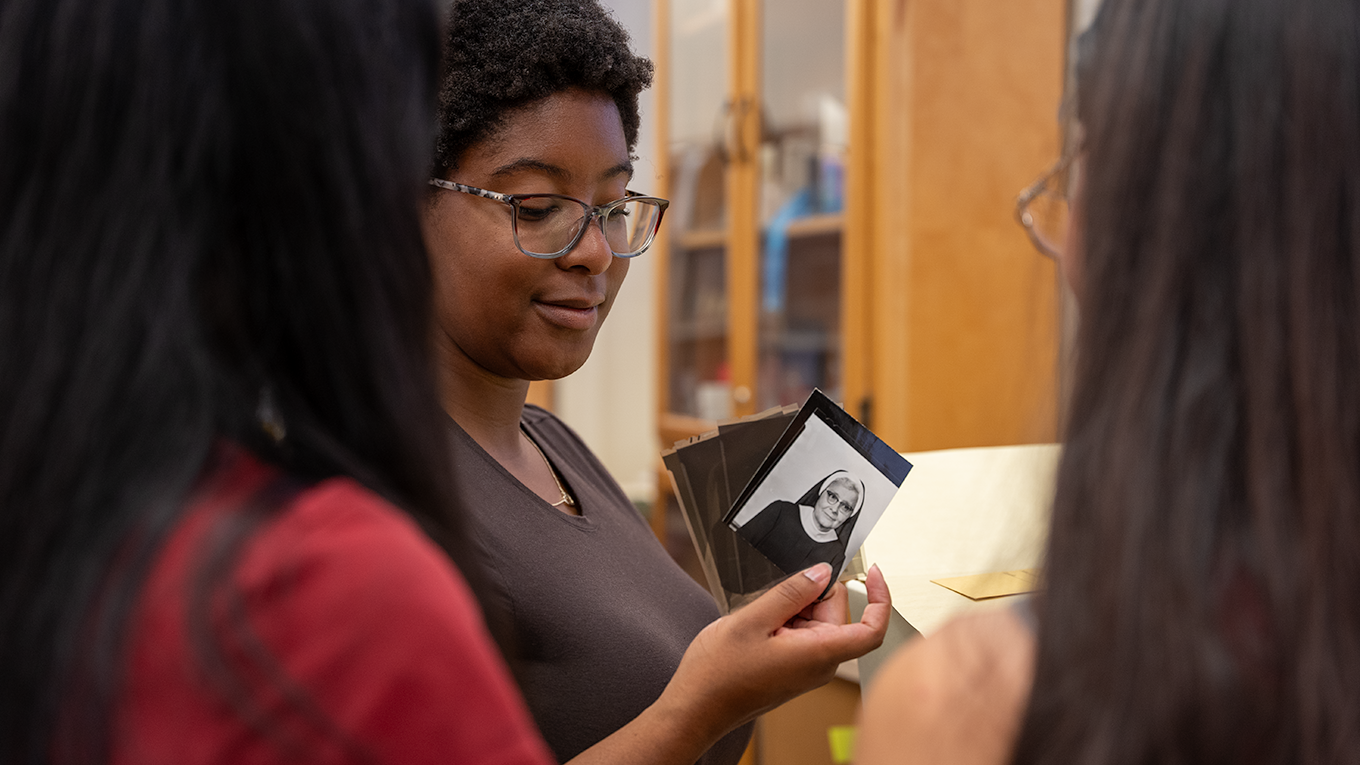At the center of the liberal arts, the study of history will broaden your horizons touching on the entirety of human endeavor—politics, economics, societal concerns, psychology, thought and religion.
Duquesne’s history department offers a range of courses—at both the undergraduate and graduate levels—that cover a variety of historical periods and regions, from ancient world history to modern American history. As a liberal arts student, your opportunities to diversify your thinking through a challenging curriculum will equip you with essential skills that you—and future employers—will find invaluable. You will learn to think critically, to write with authority and to apply your knowledge of history to reimagine your world.
Our faculty members walk alongside you with a strong foundation in historical research, analysis and interpretation, encouraging you to participate in internships, study-abroad programs and research opportunities to enhance your learning experiences.
We are a community of genuine teacher-scholars who will challenge you to go beyond the surface, ask hard questions, and cultivate in you:
- The development of methods of historical scholarship in contemplative and ethical ways, as you may deepen your understanding of the U.S. and the world.
- Understanding of how and why humans and different cultures have developed as they have across history.
- The drive to become scholars as well as educated and conscientious citizens.
Duquesne's Department of History is a valuable resource and intellectual training ground if you are interested in pursuing a career in history, whether in academia, government, politics, business or other fields.



